
Future of Data Science and How You Can Thrive With It
Mar 12, 2025 5 Min Read 4039 Views
(Last Updated)
Data Science has emerged as a revolutionary field in the technology world, transforming the way computers learn and helping organizations make data-driven decisions.
With the rapid evolution of technology and the generation of massive amounts of data, the demand for skilled Data Scientists has skyrocketed.
In this article, we will delve into the future of data science, exploring its potential impact on various industries and the career opportunities it presents.
Table of contents
- What is Data Science?
- Data Science's Contribution to the Future
- Future Scope of Data Science
- Industry-Specific Applications
- Automation and AI
- Predictive Analytics
- Personalization and Customer Insights
- Healthcare and Medical Research
- Cybersecurity
- Environmental Sustainability
- Ethical Data Science
- In the Government
- Continuous Learning and Upskilling
- Top Career Paths
- Takeaways
- Is data science a promising career for the future?
- What is the future of data science after 5 years?
- Is data science a high-paying job?
- Is data science the future of AI?
- Is 30 too late for data science?
What is Data Science?

Data Science is the process of collecting, storing, segregating, and analyzing data to extract valuable insights that drive decision-making in organizations. It is a multidisciplinary field that combines techniques from statistics, mathematics, computer science, and domain knowledge to derive meaningful conclusions from raw data.
It is integral to various technological domains, including e-commerce, social media, entertainment, and even biometric authentication systems.
Example: One of the prime examples of Data Science in action is Amazon. The e-commerce giant collects and analyzes data on every buyer’s purchases, the amount spent, and search history. This wealth of data enables Amazon to personalize and customize its homepage according to individual preferences, providing a tailored shopping experience.
Before we move into the next section, ensure you have a good grip on data science essentials like Python, MongoDB, Pandas, Numpy, Tableau & PowerBi Data Methods. If you are looking for a detailed course on Data Science, you can join GUVI’s Data Science Course with placement assistance. You’ll also learn about the trending tools and technologies and work on some real-time projects.
Instead, if you would like to explore Python through a Self-paced course, try GUVI’s Python course.
Data Science’s Contribution to the Future

Data Science encompasses breakthrough technologies such as Artificial Intelligence (AI), the Internet of Things (IoT), and Deep Learning. With ongoing advancements in these areas, the impact of Data Science is set to increase significantly. Let’s explore how Data Science contributes to shaping the future:
- Companies’ Inability to Handle Data
As businesses and organizations collect and store vast amounts of data, many struggle with the challenge of analyzing and categorizing this data effectively.
Data Scientists play a crucial role in solving this problem by applying their expertise to extract valuable insights. Proper handling of data leads to increased productivity and enables companies to make informed decisions.
- Revised Data Privacy Regulations
The passing of regulations like the General Data Protection Regulation (GDPR) in the European Union and similar data protection laws in other regions highlight the growing importance of data privacy.
Companies now face the responsibility of storing data adequately and responsibly. This co-dependency between businesses and Data Scientists ensures that data privacy is prioritized, building trust with customers and protecting against data breaches.
- Constant Evolution
To thrive in the industry, career paths need to constantly evolve and adapt. Data Science is a broad field that is continuously developing, offering abundant opportunities for professionals.
As the field matures, job roles in this field are becoming more specialized, allowing individuals to pursue specific areas of interest and expertise.
- Exponential Growth in Data

Data production is growing exponentially, driven by the increasing interaction of individuals with various technologies and devices.
As the volume of data continues to rise, the demand for Data Scientists who can efficiently manage and analyze this data will be crucial for enterprises to leverage its potential.
- Advancements in Virtual Reality
Artificial Intelligence and advancements in technologies like Deep Learning are accelerating the adoption of Virtual Reality (VR) and Augmented Reality (AR).
These technologies, combined with Data Science, will lead to significant improvements in human-machine interaction and dependency. The integration of Data Science with VR and AR will unlock new possibilities and enhance user experiences.
- Blockchain Integration
Blockchain, the technology behind cryptocurrencies like Bitcoin, ensures secure and transparent transactions. Data security is of paramount importance in Blockchain, and its integration with Data Science will strengthen data protection measures.
As big data continues to flourish, technologies like the Internet of Things (IoT) will also witness growth, further increasing the need for Data Scientists.
Future Scope of Data Science

The future of Data Science holds immense potential, presenting compelling reasons for its continued relevance in various industries. Let’s explore some key factors that contribute to the future scope of Data Science:
1. Industry-Specific Applications
Data Science is not limited to any particular industry. Its applications span sectors such as finance, healthcare, retail, manufacturing, and more. As businesses across these industries recognize the value of data-driven insights, the demand for skilled Data Scientists will continue to rise.
2. Automation and AI
Automation and AI are revolutionizing industries by streamlining processes and improving efficiency. Data Science plays a crucial role in enabling automation and AI technologies by providing the necessary data insights. As organizations increasingly adopt automation and AI, the demand for Data Scientists with expertise in these areas will soar.
3. Predictive Analytics
Predictive analytics is a key component of Data Science that helps organizations forecast future trends and make informed decisions. By analyzing historical data and identifying patterns, Data Scientists can develop predictive models that assist businesses in making accurate predictions about customer behavior, market trends, and more.
The use of predictive analytics will become even more prevalent in the future, creating a high demand for skilled Data Scientists.
4. Personalization and Customer Insights
Data Science enables organizations to gain deep insights into customer behavior and preferences. By analyzing vast amounts of data, businesses can personalize their offerings and tailor their marketing strategies to individual customers.
This level of personalization not only improves customer satisfaction but also drives revenue growth. As the importance of personalization continues to grow, the demand for Data Scientists who can derive meaningful customer insights will increase.
5. Healthcare and Medical Research

The healthcare industry generates a massive amount of data, ranging from electronic health records to medical imaging. Data Science has the potential to revolutionize healthcare by providing insights that lead to better diagnosis, treatment, and patient care.
As medical research continues to produce vast amounts of data, Data Scientists will play a crucial role in analyzing this data to drive advancements in healthcare.
6. Cybersecurity
In an increasingly digital world, the need for robust cybersecurity measures is paramount. Data Science can help identify potential threats, detect anomalies, and protect sensitive data from cyber-attacks.
As the frequency and sophistication of cyber-attacks increase, the demand for Data Scientists specializing in cybersecurity will rise.
7. Environmental Sustainability
Data Science can contribute to environmental sustainability by analyzing large datasets to identify patterns and trends related to climate change, pollution, and resource consumption.
By leveraging data insights, organizations and governments can develop strategies and policies to mitigate environmental impact. As sustainability becomes a top priority globally, the demand for Data Scientists with expertise in environmental analysis will grow.
8. Ethical Data Science
With the increasing use of data and AI, ethical considerations are becoming more critical. Data Science professionals will play a crucial role in ensuring that data is collected, stored, and used responsibly and ethically.
The demand for Data Scientists who understand the ethical implications of their work and can navigate complex ethical dilemmas will increase.
9. In the Government
Governments around the world are recognizing the power of data-driven decision-making. Data Science can help governments analyze vast amounts of data to improve public services, enhance policy-making, and address societal challenges. As governments adopt data-driven approaches, the demand for Data Scientists in the public sector will rise.
10. Continuous Learning and Upskilling
Data Science is a field that requires continuous learning and upskilling. As technologies and techniques evolve, Data Scientists need to stay updated with the latest tools, algorithms, and methodologies. The future scope of Data Science includes a strong emphasis on lifelong learning and professional development.
Top Career Paths

The future scope of Data Science also presents a wide range of career opportunities for individuals with the right skills and expertise. Here are some popular careers:
- Business Intelligence Developer: Responsible for designing and developing business intelligence solutions to help organizations make informed decisions.
- Data Architect: Designs and manages databases, data models, and data integration processes to ensure efficient data storage and retrieval.
- Applications Architect: Designs and develops software applications that leverage data and analytics to provide valuable insights.
- Infrastructure Architect: Designs and manages the technology infrastructure required for data storage, processing, and analysis.
- Enterprise Architect: Develops strategies and plans for implementing data-driven solutions across an organization.
- Data Analyst: Analyzes data to identify trends, patterns, and insights that support business decision-making.
- Data Scientist: Applies statistical and machine learning techniques to analyze data and generate actionable insights.
These are just a few examples of the diverse career paths available in Data Science, to read more about the roles and responsibilities and in-depth guidance read our article on the Roles and Responsibilities of a Data Scientist.
The demand for skilled Data Scientists is growing across industries, making it a highly lucrative and rewarding field to pursue.
Kickstart your Data Science journey by enrolling in GUVI’s Data Science Course where you will master technologies like MongoDB, Tableau, PowerBi, Pandas, etc., and build interesting real-life projects.Alternatively, if you would like to explore Python through a Self-paced course, try GUVI’s Python certification course.
Takeaways
The future of Data Science holds immense potential, as it doesn’t just teach you about data but also about how the tech of this new era works and drives global businesses with its impact extending across various industries and domains. As technology continues to evolve, the demand for skilled Data Scientists will only increase.
The future scope of Data Science includes industry-specific applications, automation and AI, predictive analytics, personalization, healthcare, cybersecurity, environmental sustainability, ethical considerations, government applications, and continuous learning.
By embracing this field, organizations can unlock the power of data and gain a competitive edge in the digital age.
Whether you are a seasoned professional or just starting your journey in this highly growing field, the future is bright and full of opportunities. Stay curious, keep learning, and embark on this career of a lifetime!
Data science is a promising career for the future. The exponential growth of data requires experts to analyze and derive insights for informed decision-making. Industries like healthcare, finance, and technology rely heavily on data-driven strategies. With a high demand for skilled professionals, competitive salaries, and opportunities for innovation, this field offers a bright and secure career path. It combines technical skills with critical thinking, ensuring its relevance and significance in the foreseeable future.
The future of data science, five years from now, will likely witness enhanced automation through AI, making data analysis and decision-making even more efficient. Ethical considerations will gain prominence, demanding responsible data usage. Specialized roles like AI ethicists will emerge. Continuous upskilling will remain crucial to harnessing evolving technologies effectively.
Yes, data science is renowned for its high-paying opportunities. Skilled professionals adept at extracting insights from vast datasets are in high demand across industries. Salaries vary based on experience, location, and sector, but the average pay is impressive. However, success requires a robust skill set in programming, statistics, and domain knowledge, coupled with continuous learning.
Data science is undeniably intertwined with the future of AI. It is the engine that drives AI, enabling it to learn, adapt, and improve. By extracting insights from vast data sets, data science refines AI algorithms, enhancing their accuracy and applicability. As AI continues to advance, data science will remain its cornerstone, shaping its potential across industries and driving innovation.
No, 30 is not too late for data science. Many professionals transition to data science in their 30s, bringing diverse skills and experiences. Dedication to learning, relevant courses, and real-world projects can lead to a successful data science career. The field values various perspectives, making it inclusive for all ages.















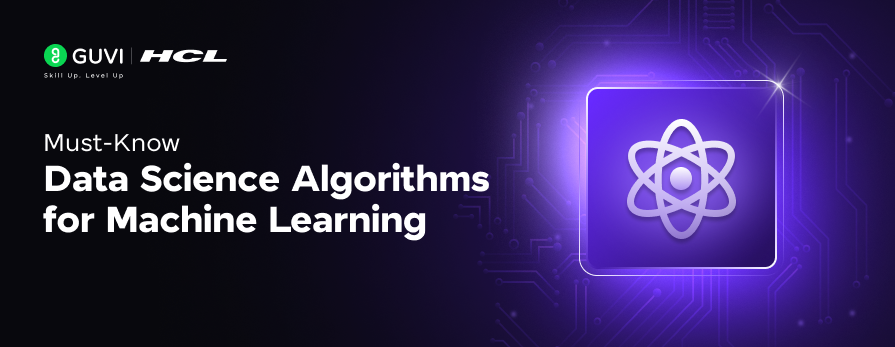
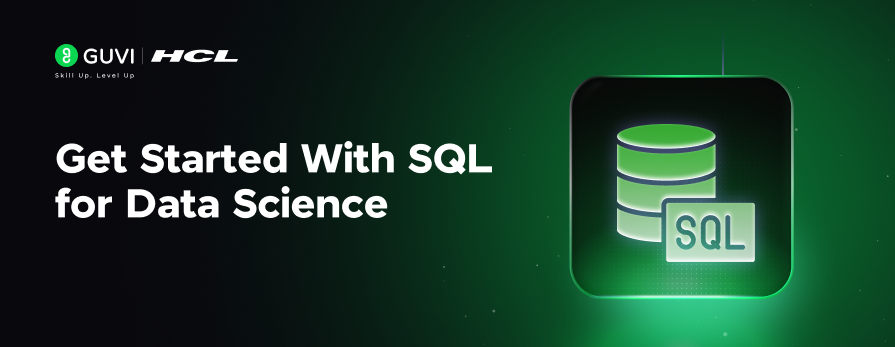
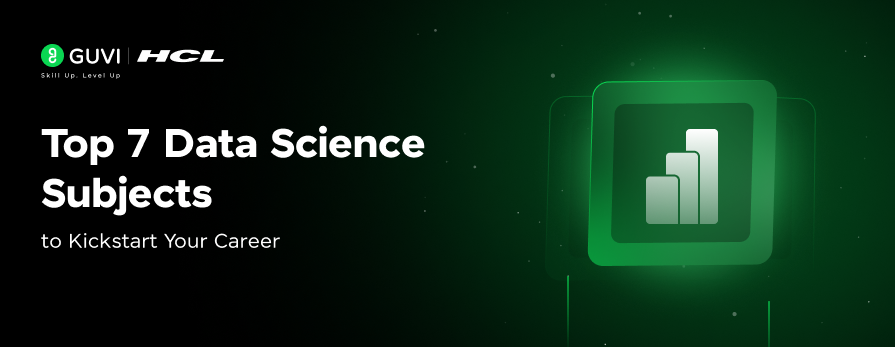
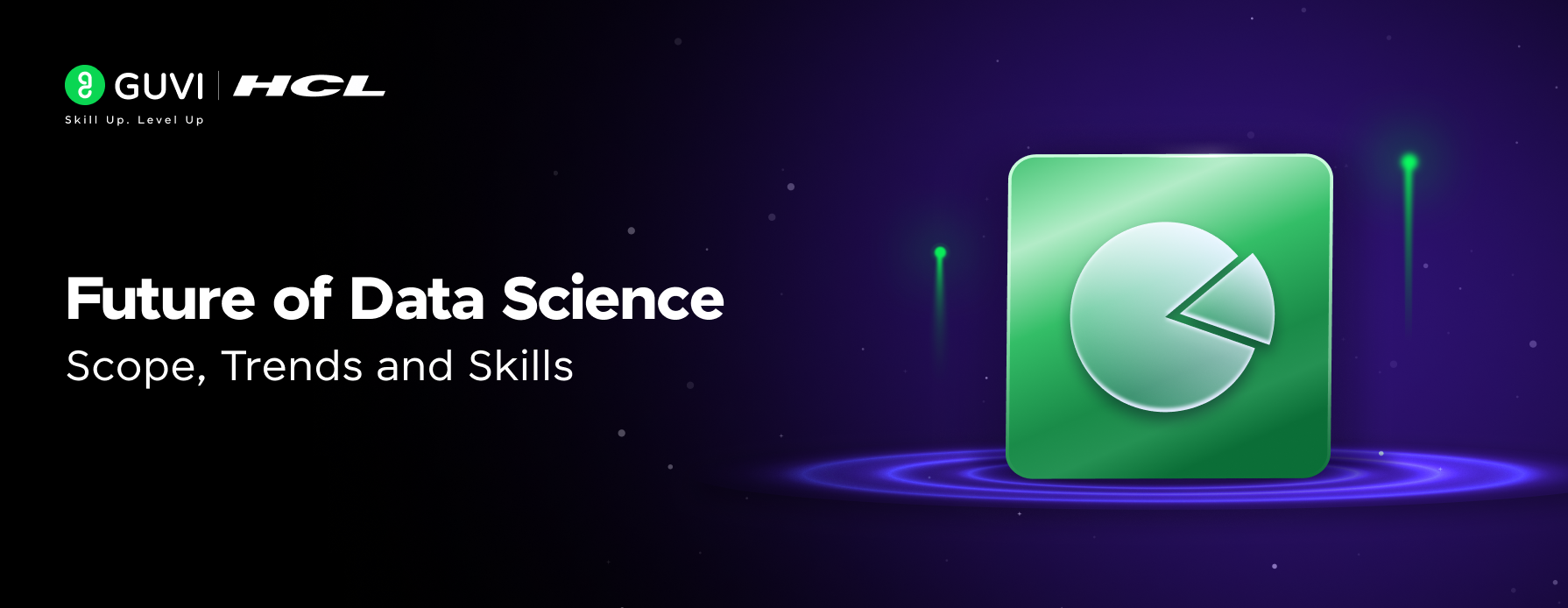
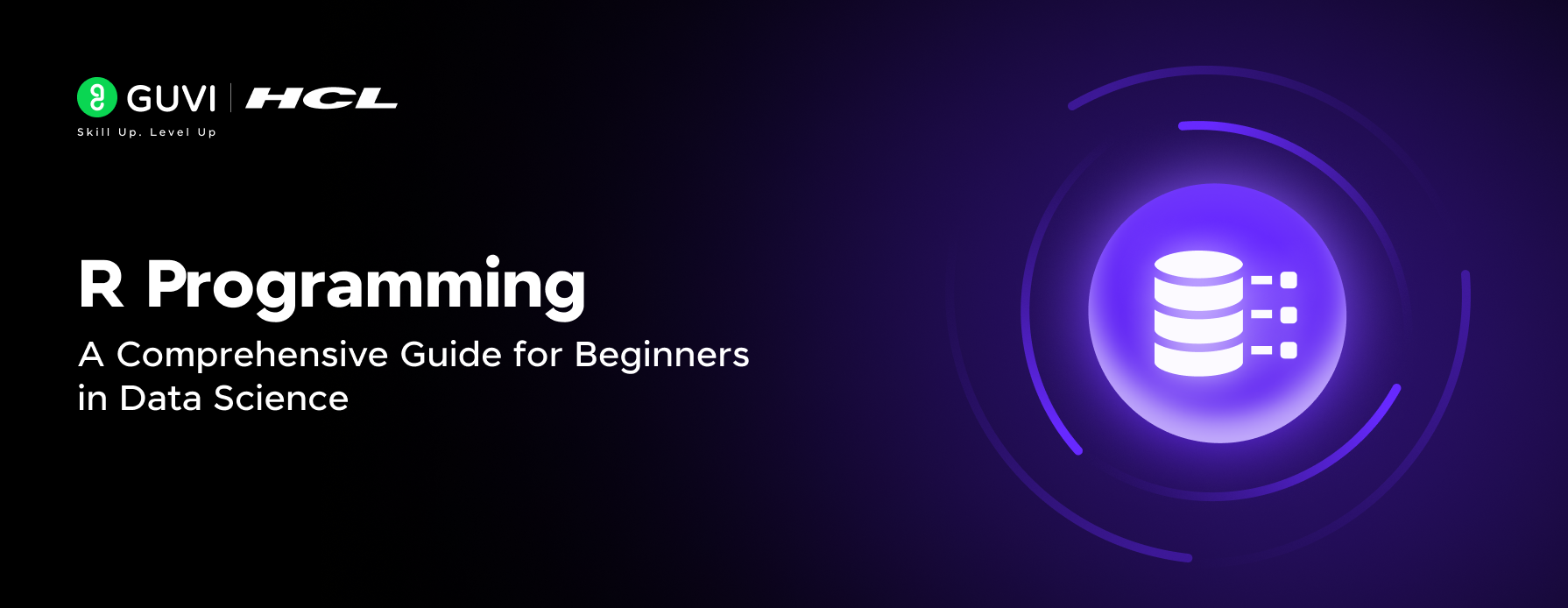
![What is the Difference Between BI and Data Science? [2025 Beginner's Guide] 13 difference between bi and data science](https://www.guvi.in/blog/wp-content/uploads/2025/06/Difference-Between-BI-and-Data-Science_.png)

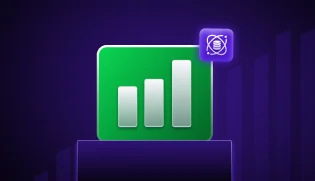
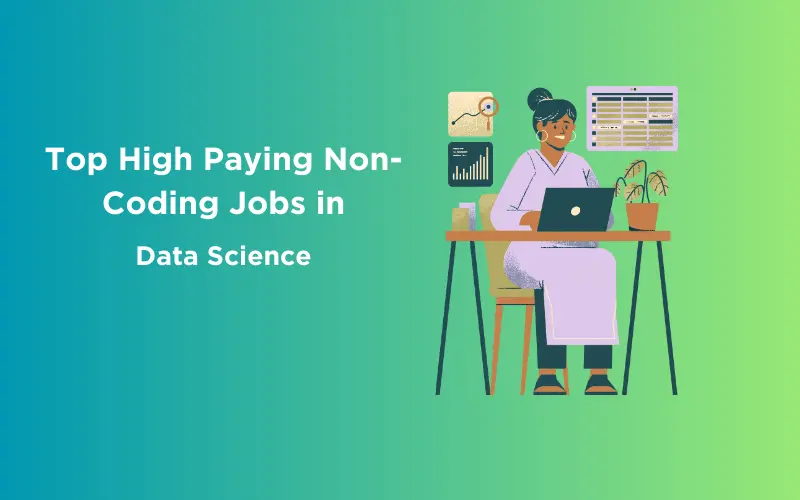

Did you enjoy this article?